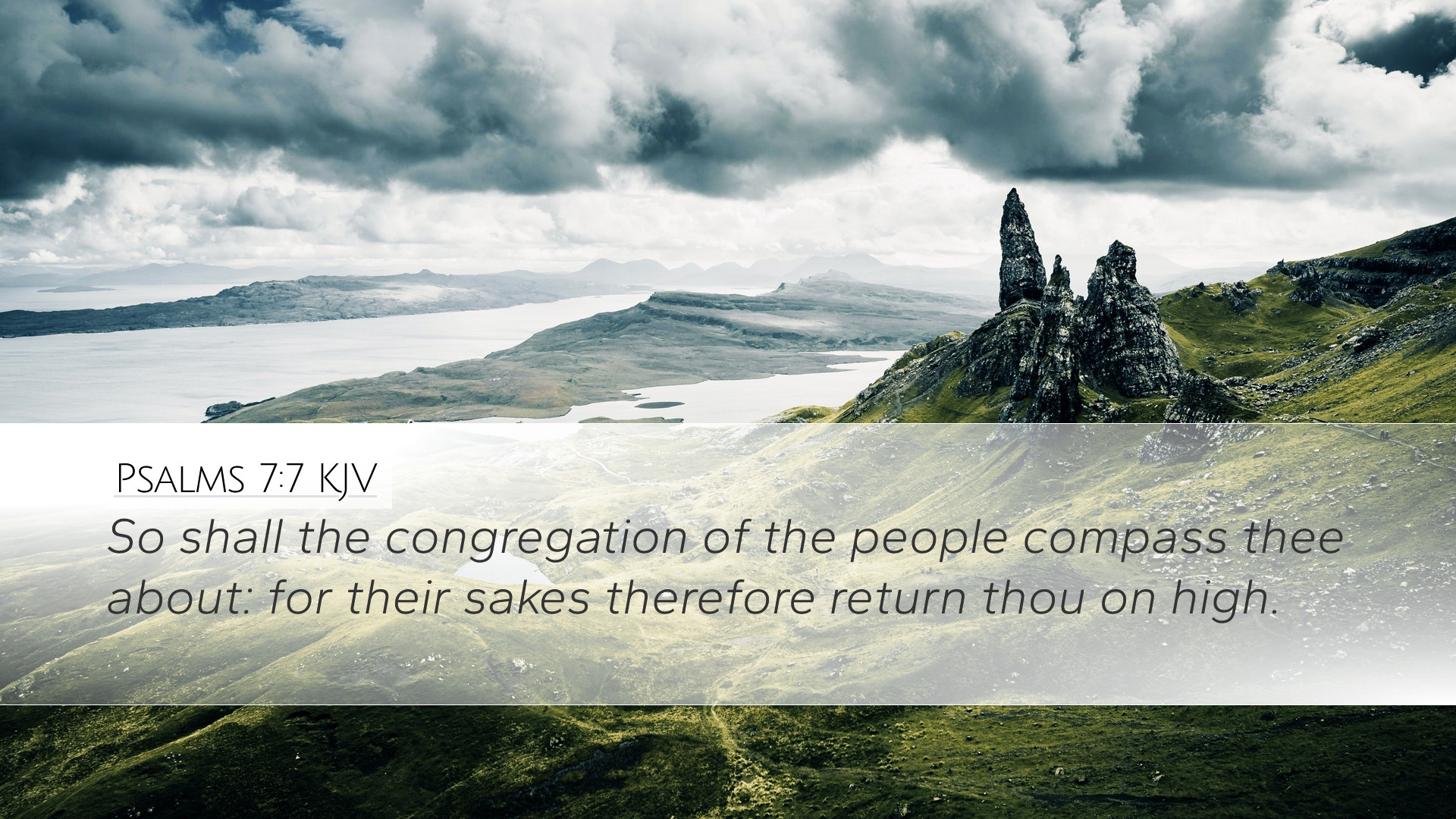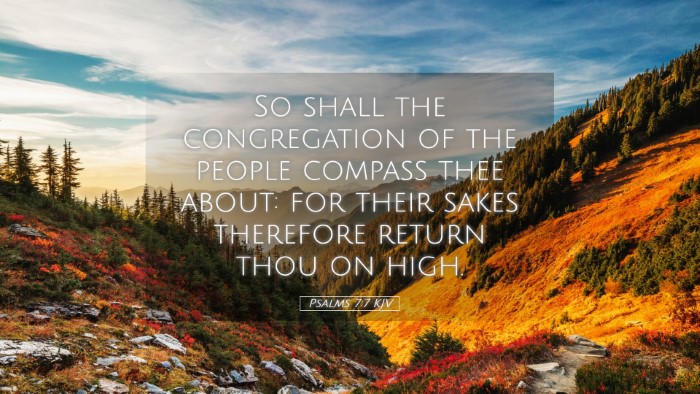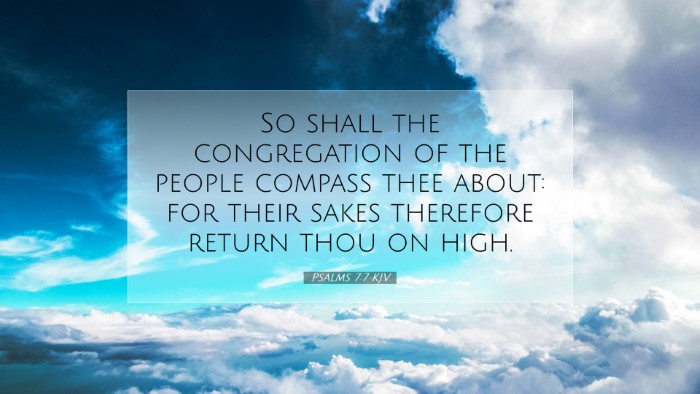Commentary on Psalms 7:7
Verse: "Let the assembly of the people surround you; and over them return on high."
Introduction
The seventh psalm of David reflects a deep reliance on God amidst adversity and betrayal. This psalm is a prayer for deliverance from enemies and a plea for divine justice. The verse in focus, Psalms 7:7, encapsulates the themes of divine protection and communal prayer, signaling the importance of the assembly of believers in seeking God's intervention. In this commentary, we will explore insights from various public domain commentaries, including those by Matthew Henry, Albert Barnes, and Adam Clarke, providing a thorough analysis for pastors, students, theologians, and Bible scholars.
Contextual Analysis
Historical Context: David is believed to have composed this psalm during a time of personal crisis, possibly related to the betrayal by Cush, a Benjaminite. The psalm serves as an appeal to God for salvation from unjust accusations and danger, highlighting the universal theme of trusting in God when faced with falsehoods and threats.
Literary Context: Positioned within the category of lament psalms, Psalm 7 also contains elements of imprecation, where David calls for justice against the wicked. The structure unfolds from a personal lament to communal appeal, underscoring the importance of the surrounding community in the spiritual battle against evil.
Verse Analysis
Interpretation of "Let the assembly of the people surround you": David expresses a desire for collective support in his plight. The phrase suggests not just physical presence but also spiritual solidarity. Matthew Henry emphasizes the necessity of unity in prayer and worship, highlighting that when leaders like David face trials, the whole people should rally in support, demonstrating a united front against adversities.
Divine Response: The phrase "over them return on high" can be interpreted as a call for God to manifest His sovereignty and power in the situation. Albert Barnes notes that this is a request for God to rise in defense of His people, showcasing His authority over the situation. The imagery employed here evokes a sense of divine oversight, where God is depicted as overseeing the matters of His people even when they are under threat.
Theological Insights
Communal Prayer and Support: The emphasis on the assembly indicates the theological principle of communal prayer. Adam Clarke points out that the body of believers is called to intercede for one another. This unity is not merely sociological but deeply spiritual, producing collective strength rooted in faith. When one part of the body suffers, the whole is called to respond, reflecting the New Testament imagery used by Paul.
God’s Sovereignty and Justice: The psalmist's confidence in God’s ultimate justice indicates the belief that God is an active participant in the affairs of humanity. Henry remarks on the assurance that the righteous may have through faith in God’s goodness. Despite present circumstances, there is a steadfast belief that God's justice will prevail. For theologians, this serves as a reminder of the character of God—He sees, He knows, and He will respond.
Practical Applications
The lessons from this verse can be integrated into pastoral care, teaching, and individual reflection. Here are some applications:
- Encouragement of Community: Pastors can foster an environment where believers actively support one another, particularly in times of struggle or persecution.
- Emphasis on Prayer Meetings: Organizing prayer assemblies, where individuals can collectively lift up concerns to God, can strengthen the congregation’s faith and unity.
- Training in Righteousness: Educators and theologians can focus on the nature of God’s justice and how individuals can live righteously, thereby building a foundation that hinges on correct moral living according to God’s statutes.
Conclusion
Psalms 7:7 serves as a profound reminder of the importance of community in the face of adversities. It underscores the power of collective prayer and the necessity of returning our focus to God’s sovereignty over difficult situations. As believers gather to seek His face, they find strength, encouragement, and assurance that justice will ultimately prevail. The insights from established commentators provide foundational principles that can aid pastors, students, and theologians in their journey of faith and understanding of God's character in times of trial.


